Dearest friends,
This past weekend was a particularly interesting experience. For several months, I had heard obscure references to this Jewish community in Ghana. I was very surprised to hear about this given the outwardly Christian orientation of Ghana, and didn't know how a Jewish community could exist or thrive here. A friend of mine, Sagie and I ventured this weekend to a Jewish community in New Adiembra a community in the middle of no where, hours from the major city of Kumasi.
As we found out, this small community of New Adiembra had for centuries not worked on Saturday (Shabbat). Hundreds of years ago the chief would fine those who worked or exchanged money on Saturday. In 1977, a local pastor recieved a vision while staring at a wall that he should "Find the lost Jewish tribe in Ghana". He began preaching Jewish scripture to villages all over, and eventually found this town of New Adiembra that seemed to be living Jewish scripture but was predominately Christian. As he started sharing Jewish scripture, it became increasingly attractive to the members of this community who viewed it as making sense of their traditions and history. Now there is a synagogue, the only in Ghana, with about 50-90 members.
We arrived at the community at around 6:30 on Friday afternoon after traveling the entire day. We asked around for Joseph Armah, and immediately were taken to this large compound and walked right to a guest room. On the TV in the guest room was a Havdallah candle, candle sticks, a stuffed Torah, and a spices container. On the window was a small banner reading "Only One God". It was at that point that I knew we had reached a special community. Our host, Joseph had gone to a funeral that day and was ritually unclean and therefore didn't light the Shabbat candles. Nonetheless, we sat around after dinner and discussed the challenges of being Jewish in Ghana. Up until just 8 years ago, members of the synagogue were bothered by community members saying, "You don't believe in Jesus?". However, now the Jewish community is growing and doesn't face as much resistance from the surrounding community.
Saturday morning, we awoke and went to Shul. This was a phrase that I never imagined I'd say in Ghana. After riding on the bus to Kumasi and having a loud preacher lecture for about an hour, I never thought that I would find a Jewish community. We walked through the town to a small blue and white cement building. Inside we found 10 pews, 5 on each side with a table in the front with three chairs. Behind the table were three bookcases, the first with Torahs and Siddurim and the second and third with Jewish childrens and adult books. I found my Hebrew School learning hebrew book from 3rd grade! There were about 10 children and 2 adults present, the children were sitting reading the books to each other and the adults were chatting. We greeted the men sitting at the table in the front who said to us, "Shabbat Shalom". I noticed the room was divided with men on one side and women on the other separated by an aisle for walking, so we sat on the right side. I was amazed by the number of children present, it was about 80% children, directly contrasting with the elderly direction of my congregation at home.
The service began and the room filled up to it's capacity with about 50 people present. We read through most of the prayers in English starting with Ma Tovu all the way through the Torah service. The most powerful part was the only part that was in Hebrew and the only part that was sung: Shema Yisrael Adonai Eloheinu Adonai Echad. At that point I was blown away by the entire experience. We had listened to English speaking and even prayers adopted into Twi songs, but this was the first words of Hebrew we heard. I couldn't believe that I was at a service of Jews in Ghana! As the leaders read the Torah, they read the verses of Parshat Emor in English, translated them into Twi and explained them as they went. Each verse was made applicable to the population and then the leaders turned to me and Sagie and asked, "Is America do the Cohens observe all this about not defiling themselves?" and other questions about the application of the readings in America. We answered to the best we could and the leader would translate for us. We explained the Mikvah as a source of purification and how the most religious, Orthodox Jews, may observe many of these customs but I as a Conservative Jew do not. In addition, we explained how the mourning process works after a death for Jews in America. As we learned, this community doesn't know whether they are Cohen, Levi, or Israelite. Nonetheless, they made an effort to apply the portion to their lives even though portion explains the laws for each of these groups. Throughout the service there were Twi songs, people got up and clapped, and the children were involved and participatory.
We were planning to leave on Saturday afternoon. When the leader asked us during the service how long we planned to stay he commented, "This community has not granted you permission to leave as we do not travel on Shabbat". It was quite surprising, but we adopted our schedules to stay for the rest of the day and leave the following morning. The rest of the day we spent touring around the village, reading Mishnah with the leader, and talking with the training Rabbi. Alex joined the congregation in 1990 as he saw in a dream that he should support the Jewish people. He used to be a pastor but began to study Judaism and is now training in Uganda to be a Rabbi. He told us that he spends about 90% of his time on the Jewish community through teaching members Hebrew, leading classes on Saturday afternoon, and being there to support community members. After his 4 year program to train as a Rabbi, Alex is going to work on researching the history of this community and continuing to build it.
One of the girls that had been guiding us around and who had been obsessed with Sagie's camera told us to stop and "Video". At which point we turned on the video and she started singing the Aleph-Bet song and other Jewish songs in Hebrew. It was quite funny, because this could have been a Hebrew school kid in the US but it wasn't it was a small Jewish community in the middle of Ghana surrounded by very Christian influences.
Overall it really got me thinking. For a while I've thought that I was Jewish by culture and by tradition, but didn't necessarily study the laws or know the scripture. I didn't think Judaism was more inherently right than other religions. But now I think that there is something right about Judaism. It was something strong enough to push members of a very Christian country to become a struggling Jewish community in the middle of Ghana. This community existed stripped of what I thought was essential for Judaism. Even in an area where it's not possible to buy Kosher foods at the store, it's not yet prevalent to have Bar Mitzvah's, and there's no parents that have raised you Jewish. Nonetheless, this community saw the value of what was written in the scripture and the power of living Jewishly. They have adopted the laws to themselves and keep Kosher even to the extent of slaughtering the animals properly. This was a pure form of Judaism that had to battle against Christian dominance, where everyone involved chose to be involved because they viewed it as right, where the text mattered just as much as living the Jewish culture. I've always seen myself as a cultural Jew and didn't think that there much more of a sensible way to live for me. But now, I feel that there is so much to be gained from studying Jewish scripture and knowing the text. I guess there's more to Judaism for me now than being a cultural Jew.
Best,
Ben
Monday, May 11, 2009
Subscribe to:
Post Comments (Atom)






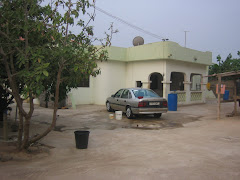
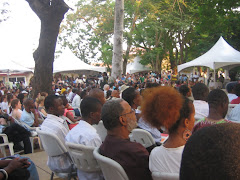
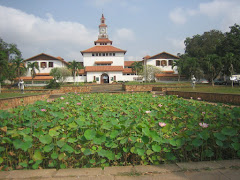
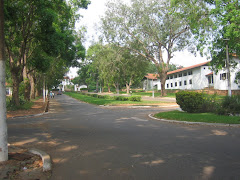
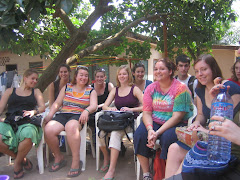
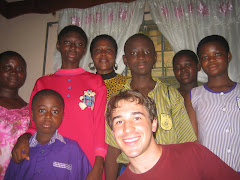

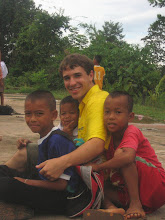
No comments:
Post a Comment